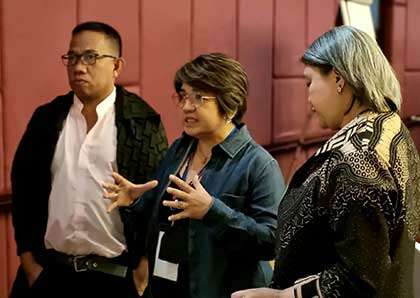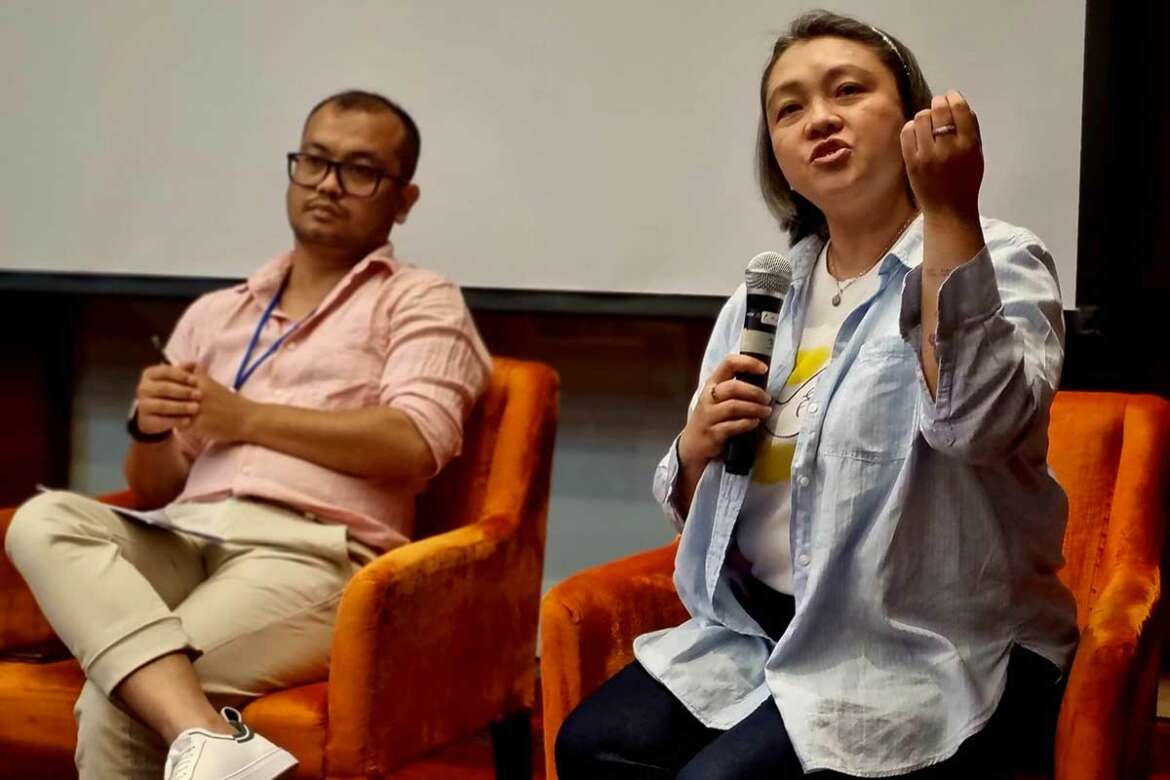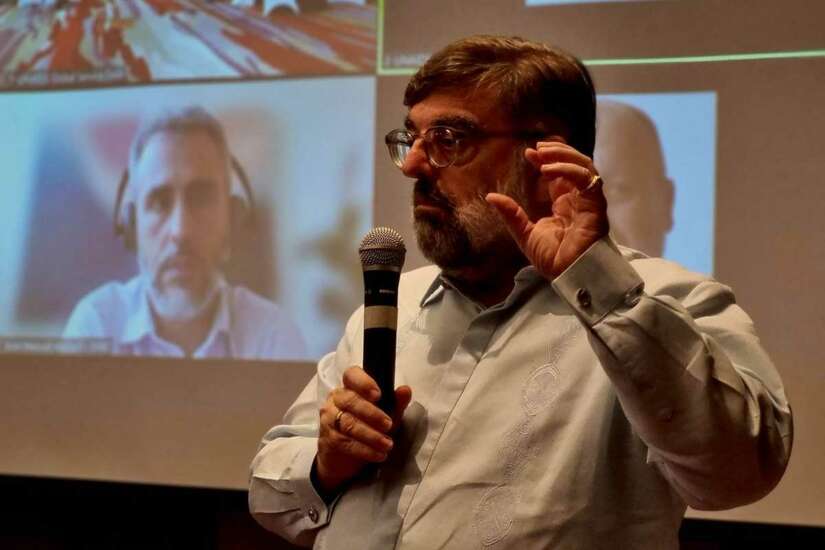BANGKOK, April 7, 2023 — Country teams and community networks tackling rising HIV infections in four Asia Pacific countries are discussing innovative strategies and solutions to explore how they can accelerate progress and achieve sustainable results. The Indo Pacific HIV Prevention Program aims to lower new infections and address inequalities that are slowing progress toward ending AIDS in Cambodia, Indonesia, Papua New Guinea and the Philippines. On April 6 and 7, UNAIDS is supporting the teams to improve project implementation by leveraging lessons learned and strategising to address challenges in the final year of the three-year initiative.
The Australian Department of Foreign Affairs and Trade (DFAT) has allocated AU$11.65 million over three years from 2021 to 2023 for the project led by UNAIDS to catalyse and accelerate separate investments by the Global Fund to Fight AIDS, Tuberculosis and Malaria (Global Fund) in the region.
Among the strategies countries have utilised are community-led monitoring, pre-exposure prophylaxis, virtual interventions, self-testing and community testing. Teams have also engaged in political advocacy and community capacity building to create a more enabling environment for people to access HIV services.
In Papua New Guinea and the Philippines there are rising new HIV infections among key populations in the 15 to 24 age group. (Since 2010 new infections among young people have increased by 51% in Papua New Guinea and 216% in the Philippines.) A significant proportion of new infections in Cambodia (42%) and Indonesia (48%) are also among young key populations. This relatively new epidemic among young people stands alongside older, more established epidemics and requires distinct approaches.

The Philippines has the fastest rising HIV epidemic in the region with new infections more than quadrupled since 2010. New infections in Papua New Guinea have increased by 45% since 2010 and there are acute challenges with respect to access to antenatal care and therefore prevention of mother to child HIV transmission. In Indonesia more than two-thirds of people living with HIV are not accessing treatment. The country also faces significant legal and policy challenges to expanding a human rights-based HIV response. Cambodia has achieved almost universal treatment coverage for diagnosed people living with HIV. It is now working to ensure the remaining 14% of people living with HIV become aware of their status.
“We have different countries, different epidemics and different intervention mix needs, but we need collective results,” said Eamonn Murphy, UNAIDS Regional Director for Asia Pacific. “Epidemics don’t recognise borders. Each country needs to respond to HIV to protect all countries in the region. Strategic funding such as this makes larger investments work better. Let’s focus on the theory of change, ensuring we are not duplicating but complementary or accelerating other programmes.”
DFAT Health Adviser, Joshua Metcalf-Wallach, emphasised that the grant was intended to support a comprehensive approach across the region with knowledge of what works being shared among countries. This includes coordination with broader national programs and approaches supported by UNAIDS, the Global Fund and PEPFAR.
“We are working together to build something greater than the sum of its parts,” Mr Metcalf-Wallach said. “I challenge you to question whether what is being proposed is just at the level of service delivery or whether you are focusing on achieving policy shift or change at a higher level. This is about finding the niche location where we can invest funding to create structural level changes.”
Dr Vindi Singh, Global Fund’s Senior Disease Advisor on HIV Treatment reiterated that the project should be synchronised with the countries’ Global Fund grants.

“As funding declines let’s make sure we are really strategic. The Global Fund Strategy 2023 to 2028 calls for us to speed up access to precision HIV prevention for those at highest risk,” she said.
Over two days in Bangkok, Thailand, country teams and regional networks of people living with HIV and key population communities will review programmatic achievements and revise implementation plans for year three. They will also discuss the support required to improve grant implementation and enhance south-south collaboration between countries.

